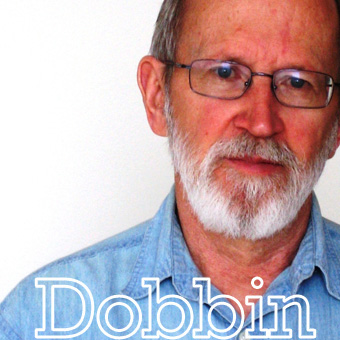DOBBIN: The beginning of a new era in politics
I confess that I did not, as promised, spend the summer thinking about the new paradigm of local, national and global politics. It was the perfect summer at my log cabin in Saskatchewan and I spent most of it swimming to the end of the lake and back, picking blueberries and swinging in my Mexican hammock. But I did spend some time pondering just what has to happen in Canadian left politics to address the crisis in confidence and the collapse of social movement and labour politics.
My view has not changed since spring when I suggested that existing organizations are unlikely to be able to meet the challenges of the current crisis without some kind of external demand and pressure from below. Many organizations have simply disappeared or are moribund to the point of being irrelevant. Labour is virtually AWOL with no new ideas and no appetite for sustained struggle. The NDP, despite a social democratic culture largely intact despite assaults on it, is still mired at 15-17 percent in the polls and incapable, apparently, of bold, challenging leadership on any issue.
In the heady days of the fight against free trade there were active, dynamic social justice coalitions in every province except New Brunswick as well the national Action Canada Network. Each of those coalitions was made up of dozens of community groups from unions and anti-poverty groups to cultural and environmental organizations. They had fire in their bellies and passion for the country – or rather, what the country’s working and middle class people had accomplished..
In the era of social justice coalitions the political culture provided the possibility of change – the elites were still susceptible to pressure from citizens and their organizations. We didn’t win every fight but we did win some and we could at least imagine winning if we fought hard enough and smart enough. I was on the board of the Council of Canadians in the late 1990s and the Council was part of victories against bank mergers, the BGH hormone in milk, Paul Martin’s plan to gut the Old Age Assistance program – not to mention the defeat of the MAI which was largely a Canadian activists’ victory.
Such victories are now much more difficult to achieve. Twenty years of globalization has seen an already weak nationalist elite become little more than a class of Quislings – eager to sell out whatever is left of the country and deaf to the anguish about what we are losing. They identify not with Canada but with their own sordid and pathetic wealth accumulation and the global class of super-rich.
Government bureaucracies – once quiet defenders of the collective good – are now decimated and partially occupied by ideologues committed to dismantling the social democratic state.The decision of the right to seize control of the media – via Conrad Black and the Asper family – has had the accumulative affect over more than decade of impoverishing the political debate and neutralizing dissenting voices.
The rise of the internet has moderated this somewhat but blogs, tweeting and Facebook and a few on-line journals will not challenge the power of television any time soon. The incredibly destructive power of Fox News in the US proves this – and those who fear the arrival of a similar network here (headed up by Harper’s former communications guru) are right to be fearful.
If change is going to come – if organized social change organizations are to form anew – perhaps it will have to come from individuals demanding it. This is certainly true if we are talking about the momentous changes we are looking at down the road. The climate change crisis, the permanent recession, the desperate need to curb private sector growth and consumerism (and the parallel need for public sector growth and human scale development) all speak to a new politics which virtually none of the traditional players are even talking about (the BC office of the CCPA being a notable exception) let alone practicing.
In the absence of broad social movement organizations that actually understand our current context perhaps the next step is for those who do get it coming together in smaller groups to imagine the future – the future we want and the politics we need to create to get us there. A couple of recent articles suggest the kind of reading, imagining and thinking that needs to be done (in study/action groups?) in order for a new politics to be informed. Marc Lee of the BC-CCPA just published a piece called “What are the game changers?” on the blog site The Progressive Economic Forum – the source of some leading edge thinking about political economy from some of Canada’s brightest public intellectuals.
What are the game changers? According to Lee: “The game changers need to be measures that fundamentally alter the balance of power between corporations (and compliant governments) and ordinary people, building on the successes that have remained resilient to the onslaught of expanding markets for for-profit enterprise (in BC, public auto insurance, BC Hydro, BC Ferries, the Agricultural Land Reserve, public health care and education are all examples that have held their own against right-wing governments; perhaps bruised but still very much alive). Game changers, almost by definition, need to be bold, and ordinary people need to see that such moves will improve their day-to-day lives.”
Lee provides a twelve step program which includes: “Reigning in corporations – Currently, shareholders and executives benefit from limited liability (e.g. in the case BP oil spill, shareholders’ losses are limited to the price they paid for their shares), free speech (in advertising and politics)… Corporations can be a useful organization form but they should have to prove their benefit to society, with sunsets on their corporate charters and a process for renewal.” And “Reclaiming the New “Commanding Heights” – Key sectors of the economy should be brought into the public sector through aggressive regulation, nationalization or creation of public competitors.”
Lee gets us started thinking about the Big Ideas that have been absent from left thinking and proselytizing for too long but he leaves the politics of how to get there either for later or for others to contribute. Perhaps it will only become clear once we extricate ourselves from the defensive, chronically negative politics that right-wing domination has fostered.
Another article worth reading is “Towards a New Economy and a New Politics” by American writer Gus Speth. He writes about the US but most of his conclusions apply equally well to Canada.
Speth observes: “The prioritization of economic growth and economic values is at the root of the systemic failures and resulting crises America is now experiencing. Today, the reigning policy orientation holds that the path to greater well-being is to grow and expand the economy. Productivity, wages, profits, the stock market, employment, and consumption must all go up. This growth imperative trumps all else. It can undermine families, jobs, communities, the environment, and a sense of place and continuity because it is confidently asserted and widely believed that growth is worth the price that must be paid for it.”
As for how we get there, Speth writes: “…the best hope for a new political dynamic is a fusion of those concerned about environment, social justice, and political democracy into one progressive force. A unified agenda would embrace a profound commitment to social justice and environmental protection, a sustained challenge to consumerism and commercialism and the lifestyles they offer, a healthy skepticism of growth-mania and a new look at what society should be striving to grow, a challenge to corporate dominance and a redefinition of the corporation and its goals, and a commitment to an array of major pro-democracy reforms.”
How could we make that happen in Canada? There are still hundreds of thousands of us belonging to scores of national, provincial and local groups. For the most part, we pay our membership dues because we support the good work they are doing. But that good work isn’t working fast enough. It is still largely following the old rules where single issue organizing produced the occasional victory and held power to account. There are still victories to be had in this way – but they don’t add up to a challenge to capitalism.
Maybe we should all be writing to the groups we keep alive by our financial contributions and tell them they need to do more. They need, in Speth’s words, to begin thinking about a unified agenda that help us break out of the fatal political rut we find ourselves in. That goes for the labour, environmental, social justice, human rights and anti-poverty organizations as well as the NDP and the Greens. You want our money? Do better. Be bold. Provide visionary leadership. Then we might give you even more money to really begin to change the world.
This article originally appeared in Mr. Dobbin’s blog. Reprinted with his kind permission.























Comments